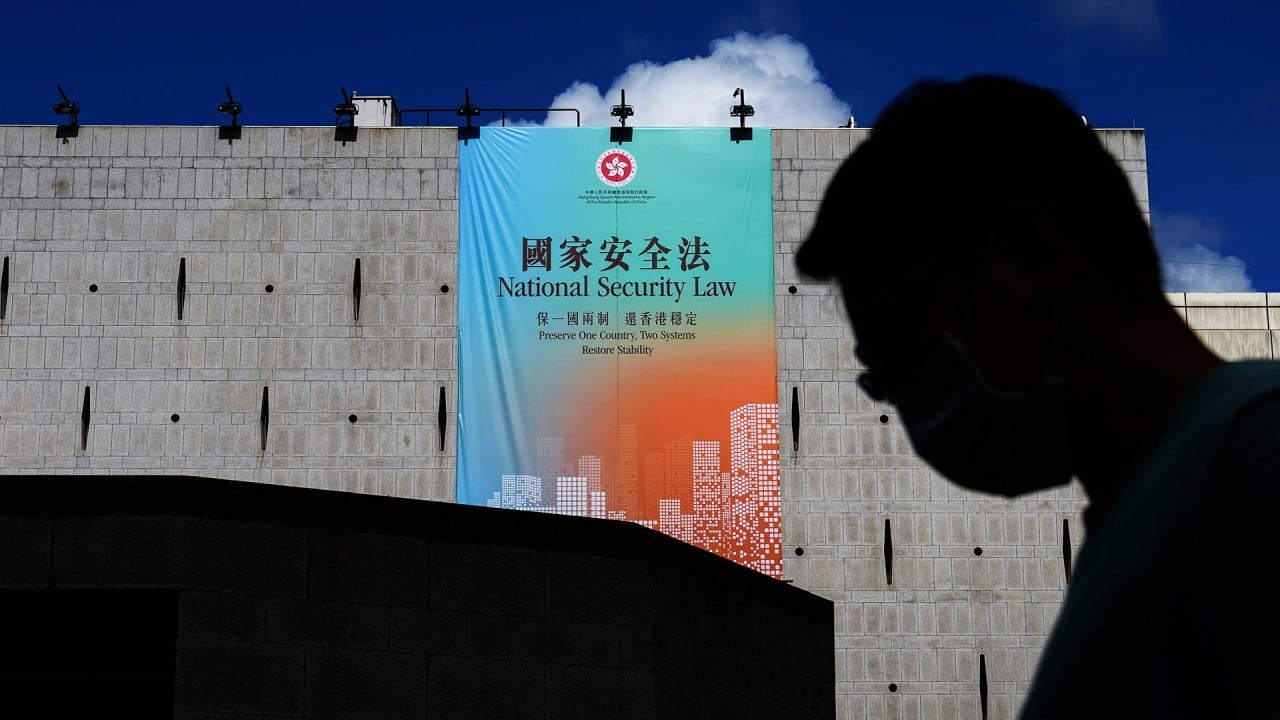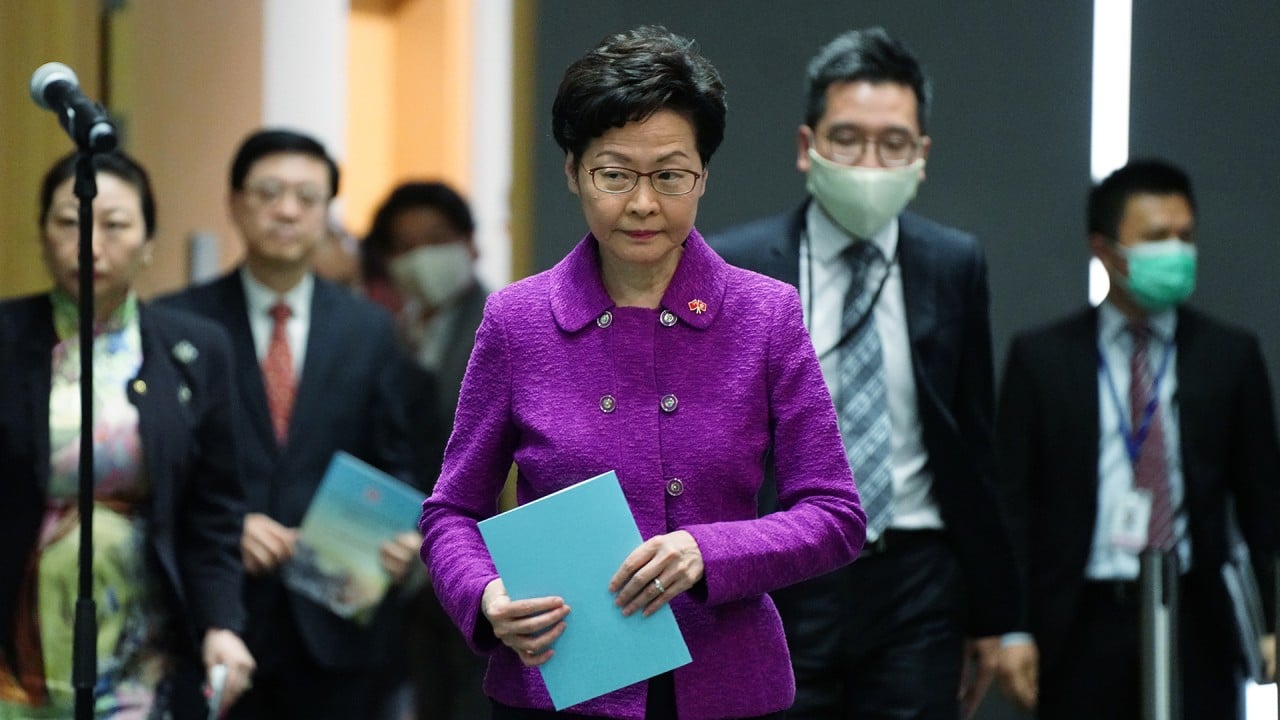
How the national security law strikes at the heart of Hong Kong’s judicial independence
- Official assurances of judicial independence ring hollow when the chief executive and justice secretary have overlapping and conflicting roles in the designation of a pool of judges and prosecution of national security cases
It provides that, along with the executive and the legislature, the “judiciary of the Region shall effectively prevent, suppress and impose punishment for any act or activity endangering national security in accordance with this law and other relevant laws” (Article 3).
This command is reconfirmed where, to safeguard national security effectively, Hong Kong’s judicial authorities “shall fully enforce” the national security law and the city’s laws for acts endangering national security (Article 8). The national security law’s orders to the judiciary could not be clearer.

03:25
Hong Kong police arrest 10 under new national security law
Unlike the chief executive’s appointment of judges to courts based on their judicial and professional qualities, and in accordance with a transparent, legal procedure, the chief executive’s criteria for designating judges is opaque.
His definition is thin and incomplete. Judicial independence is broader than non-interference with the judge during the trial; it includes the institutional independence of the judiciary’s relationships to the executive and legislative branches of government.

02:13
Beijing’s passage of national security law for Hong Kong draws international criticism
The judiciary must also be perceived as being independent and impartial. Like justice, judicial independence requires the judiciary to not only be independent, it must be seen to be independent. Judicial independence under the national security law fails on both fronts.
The term of office of a designated judge is one year so there is no security of tenure of designation. With the mainland conviction rate close to 100 per cent, a designated judge’s performance will be under scrutiny by the chief executive and the committee; judges will be under pressure to “effectively prevent, suppress and impose punishment for any act endangering national security”.
If their performance is not satisfactory in the eyes of the chief executive and the committee, then the chief executive will remove them from the designation list. Removal may be based on whether the judge “makes any statement or behaves in any manner endangering national security during the term of office” (Article 44).
This might conceivably include the acquittal of a defendant, in the case where the chief executive and the committee sees an acquitted defendant as a continuing danger to national security.
The chief executive’s involvement in national security cases goes beyond the power to select the pool of judges to try national security offences, to include the prosecution of those offences. The prosecutor of national security offences is the Hong Kong government, of which the chief executive is head.

01:15
Carrie Lam says she would rather not ‘arrest or prosecute anybody’
The overlapping and conflicting roles of the chief executive and secretary for justice could not be plainer, and ignores the cardinal principle of which the High Court of Australia reminds us: “Judges do not choose their cases; and litigants do not choose their judges.”
Assurances made by officials that the national security law does not affect judicial independence ring hollow. Judicial independence must exist in all parts of the legal system, not just in some.
Michael Blanchflower SC is a former assistant solicitor general of Hong Kong (1991-1993) who specialises in criminal law and human rights law

